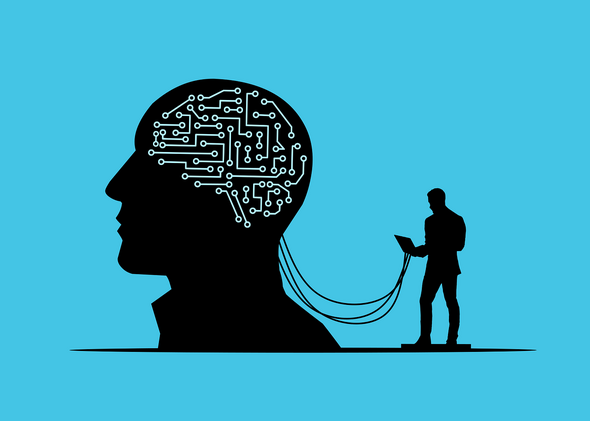Table of Contents
Meet Alex, a software engineer who prided himself on logical thinking and systematic problem-solving. When a friend suggested hypnosis might help with his chronic stress, Alex laughed it off. "I'm way too analytical for that stuff," he said. "My brain doesn't just shut off and believe whatever someone tells me."
Sound familiar? If you're someone who approaches life through the lens of logic, data, and careful analysis, you've probably had similar thoughts about hypnosis. The common assumption is that analytical minds are somehow "resistant" to hypnotic states—that thinking too much gets in the way of the process.
But here's what might surprise you: research suggests the exact opposite is true. Your analytical mind isn't your enemy in hypnosis—it's actually your secret weapon.
The Misconception About Analytical Minds and Hypnosis
The idea that logical thinkers can't be hypnotized stems from outdated stereotypes about what hypnosis actually is. Many people still picture the stage hypnotist making volunteers bark like dogs, reinforcing the notion that hypnosis requires you to "turn off" your critical thinking and become gullible or suggestible in an almost childlike way.
This misconception creates a paradox for analytical people. The very traits that make you successful in your professional life—careful evaluation of information, systematic thinking, and healthy skepticism—seem to conflict with what you think hypnosis requires.
But modern neuroscience and psychology research paints a very different picture of how hypnosis actually works and who responds best to it.
What Research Tells Us About Analytical Minds and Hypnosis
Dr. Amir Raz, a neuroscientist at McGill University who has extensively studied hypnosis, explains that highly analytical individuals often demonstrate superior hypnotic ability once they understand the mechanisms involved. His neuroimaging studies show that people with strong analytical capabilities can more effectively engage the brain networks involved in focused attention and cognitive control—both crucial components of hypnotic states.
The key insight from cognitive neuroscience is that hypnosis isn't about shutting down your analytical mind. Instead, it's about redirecting that analytical power toward internal processes rather than external skepticism. When you understand this distinction, your natural tendency to analyze becomes a tool for deepening your hypnotic experience rather than blocking it.
Research published in the journal Consciousness and Cognition found that individuals with higher cognitive flexibility—a hallmark of analytical thinking—showed greater responsiveness to hypnotic suggestions. The study authors noted that these individuals could more easily shift their attention between different cognitive tasks and mental states, making the transition into hypnosis more fluid and effective.
How Your Analytical Mind Enhances Hypnosis
Think of your analytical mind as a sophisticated computer processor. In daily life, you use this processor to evaluate external information, solve problems, and make decisions. During hypnosis, you're simply redirecting that same processing power inward.
Here's how this redirection works in practice:
Pattern Recognition Becomes Internal Awareness: Your ability to identify patterns and systems can be applied to recognizing the subtle shifts in your mental and physical state during hypnosis. You might notice how your breathing changes, how different muscle groups relax in sequence, or how your internal dialogue shifts. This awareness doesn't interfere with the process—it enhances it by giving you more conscious control over deepening the experience.
Systematic Thinking Supports Progressive Relaxation: Your natural inclination to approach things step-by-step aligns perfectly with techniques like progressive muscle relaxation or systematic desensitization. You can methodically work through each part of your body or each level of relaxation, using your analytical nature to ensure thoroughness and effectiveness.
Quality Control Mechanisms Increase Trust: Paradoxically, your analytical mind's built-in "quality control" system can actually help you trust the hypnotic process more deeply. When you understand the science behind what's happening, when you can monitor and verify the positive changes occurring, your analytical mind gives you permission to go deeper rather than holding you back.
The Neuroscience Behind Analytical Engagement
Dr. David Spiegel, a psychiatrist and researcher at Stanford University School of Medicine, has used brain imaging to study what happens during hypnosis. His research reveals that hypnotic states involve increased activity in areas of the brain responsible for focused attention and decreased activity in regions associated with self-consciousness and critical evaluation.
For analytical individuals, this process can be understood as a form of "cognitive allocation." You're not turning off your analytical capabilities—you're strategically deploying them. Instead of using your analytical resources to evaluate and potentially resist the hypnotic suggestions, you direct them toward monitoring your internal state and optimizing your response to the process.
This reframing is crucial because it transforms hypnosis from something that happens to you into something you actively participate in and optimize. Your analytical mind shifts from being a skeptical observer to being an engaged participant in the process.
Practical Strategies for Analytical Hypnotic Success
Understanding the theory is one thing, but how do you practically apply your analytical strengths to enhance your hypnotic experience?
Start with the Science: Before your first hypnosis session, research the neuroscience behind hypnotic states. Understanding that hypnosis involves measurable changes in brain wave patterns, neurotransmitter activity, and neural network connectivity gives your analytical mind a framework to work within rather than against.
Monitor and Measure: Use your natural tendency to track and analyze by paying attention to objective indicators of your hypnotic state. Notice changes in your heart rate, breathing depth, muscle tension, and subjective sense of time. This monitoring doesn't break the hypnotic state—it deepens it by giving you concrete evidence that the process is working.
Apply Systems Thinking: Approach hypnosis as a skill that can be systematically developed and improved. Track what techniques work best for you, what environments are most conducive to deep states, and what preparation methods yield the best results. This systematic approach appeals to your analytical nature while optimizing your outcomes.
Use Logical Frameworks: Many hypnotic techniques can be understood through logical frameworks. Progressive muscle relaxation follows a clear sequence. Visualization exercises follow principles of cognitive psychology. Understanding these frameworks gives your analytical mind something productive to focus on during the process.
Why This Matters for Your Success
The research is clear: analytical thinking isn't a barrier to hypnotic success—it's an accelerator. When you understand how to harness your natural analytical strengths, you can achieve deeper hypnotic states more quickly and with greater consistency than individuals who approach hypnosis without this systematic mindset.
Dr. Irving Kirsch, a researcher at Harvard Medical School who has studied hypnosis and placebo effects, notes that individuals who understand the mechanisms behind hypnotic suggestions often show stronger responses to those suggestions. Your analytical mind's need to understand "how" and "why" becomes a powerful tool for enhancing the effectiveness of the entire process.
The key is recognizing that your analytical nature isn't something to overcome in hypnosis—it's something to strategically deploy. When you stop fighting against your natural thinking patterns and start leveraging them, you transform from a reluctant participant into an active collaborator in your own hypnotic success.
Your logical mind, your systematic approach, and your healthy skepticism aren't obstacles to overcome. They're sophisticated tools that, when properly directed, can make you exceptionally skilled at accessing and utilizing hypnotic states for whatever goals you're pursuing.
Alex, our engineer from the beginning of this post, discovered this firsthand. Once he understood the science and learned to redirect rather than suppress his analytical nature, he found that he could achieve deeper relaxation states and more consistent stress relief than he had ever thought possible. His analytical mind didn't make him immune to hypnosis—it made him exceptionally good at it.



